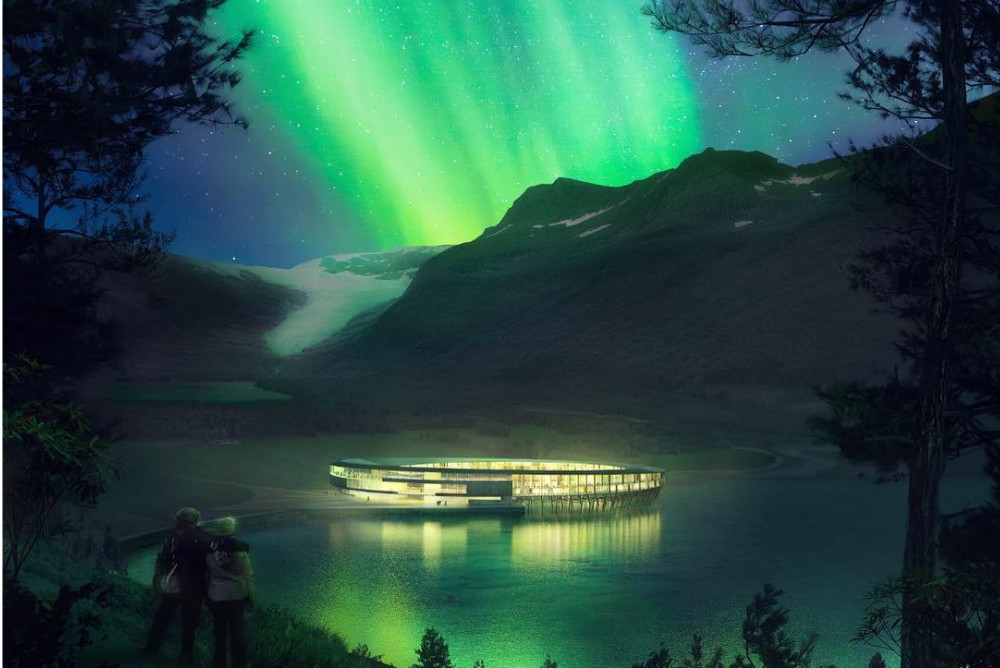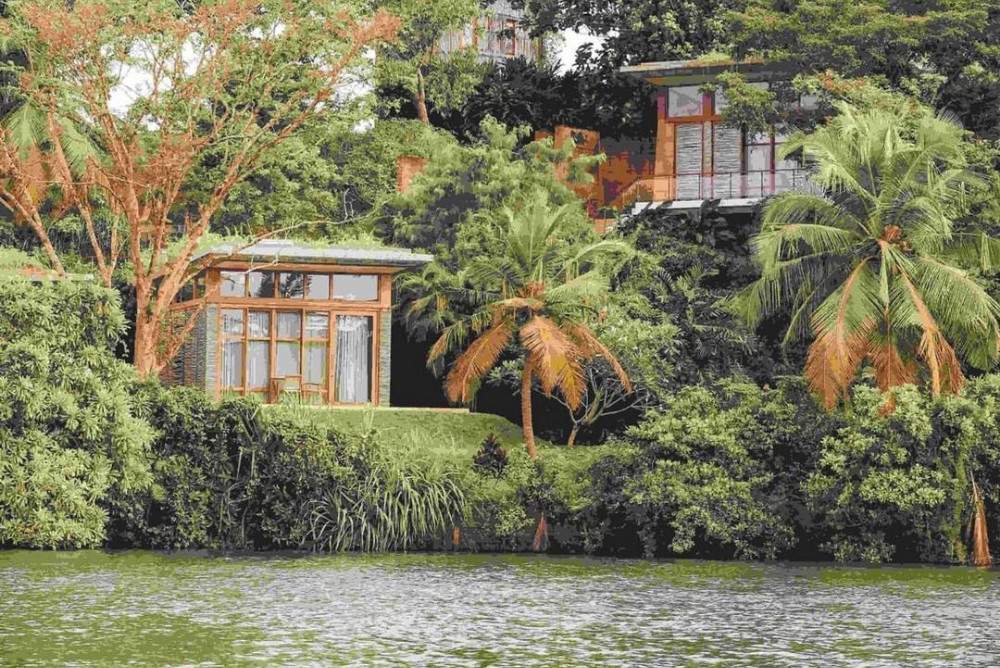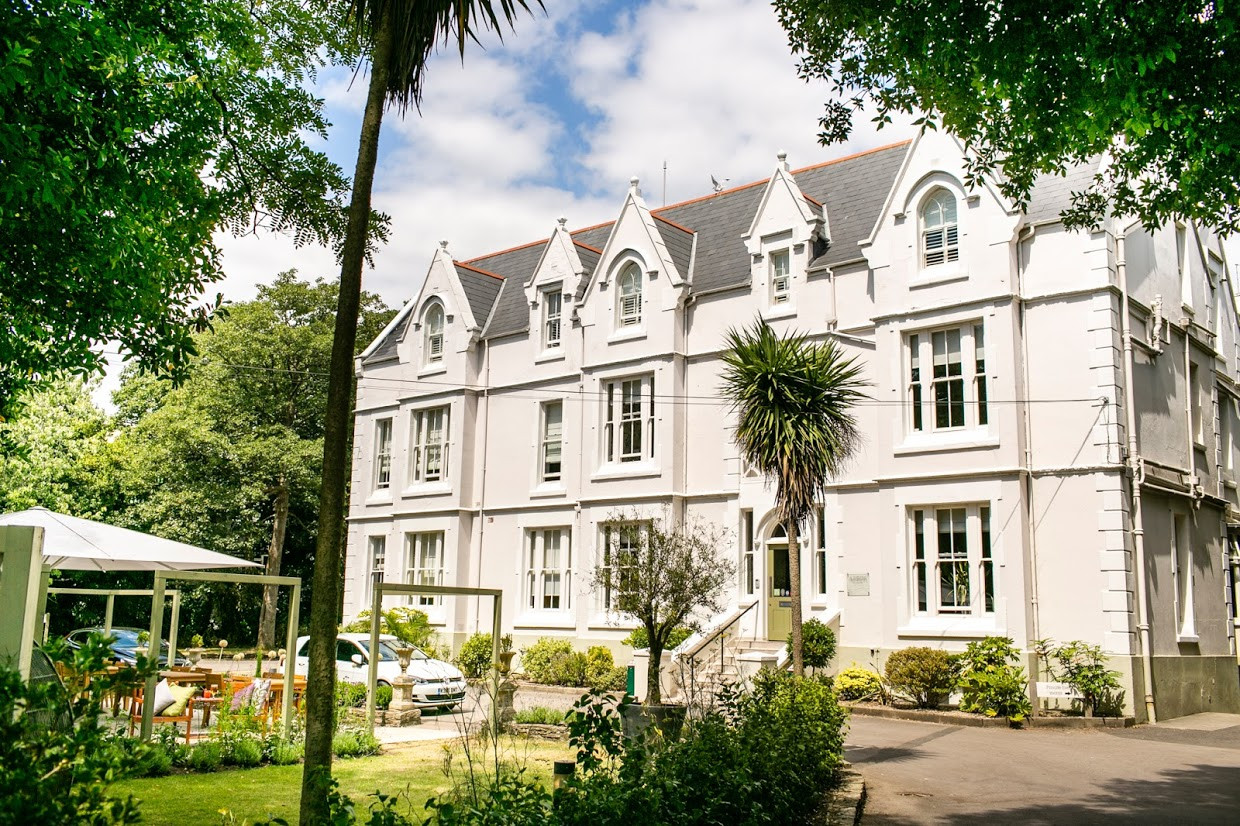Travel is a life-changing experience, and today, we’re fortunate that even the most remote corners of the globe are available to visit. We’re traveling so much, in fact, that the tourism industry has grown to the point where it now contributes to 9% of the global GDP and 8% of world employment. With over 250 million tourism jobs worldwide, it’s no surprise that the travel industry is not just one of the world’s biggest moneymakers, but also one of the world’s biggest polluters.
Sustainable tourism is undeniably the future, and a ton of lodges, hotels and resorts around the world are already adopting eco-friendly practices to reduce their environmental impact. From busy urban retreats to bungalows tucked in nature, these eco lodges are focused on waste reduction, energy efficiency, and water conservation… even down to the tiny details like linens, shower products, and water bottles.
Feel closer to nature with our pick of 10 of the most beautiful eco lodges and resorts around the world. Cheers to doing your part and enjoying our planet for generations to come!
Olas Tulum, Mexico

Not only is Olas Tulum known for its secluded serenity in one of Mexico’s most vibrant destinations, but also for its unwavering commitment to self-sustainability. For starters, this eco lodge is powered exclusively by solar energy from the photovoltaic panels found on the roof, while an elaborate rainwater filtration system and underground river scheme provide the entire property with clean water.
The ethos of sustainability continues to the hotel’s kitchen, where every single ingredient, fruit, vegetable, fish, and meat comes from local providers around the community. Food waste is composted onsite through traditional Mayan treatment systems, eventually feeding the property’s plants and vegetation.
Even the architecture, developed by Austrian engineer and naturalist Carlos Schober, was designed to conserve energy. The precise curvature of the walls helps channel flow from the sea breeze to eliminate the need for air conditioning (also known as the venturi effect).
Svart, Norway

Located along Norway’s arctic coastline, Svart is shooting to become the world’s first energy-positive, off-grid eco lodge. Their ambitious goal is clear: to be completely self-sufficient in electricity, water, and waste management within five years of opening. Its remote location poses challenges, but through its robust solar panel system, Svart will power all its other sustainable components, like the greenhouse farm, boat shuttle operation, and local nature preservation.
Throw in a holistic approach to wellness, and you have the perfect base for conscious travelers looking to explore the unspoiled nature of Norway’s polar region (including the breathtaking Northern Lights).
Campi Ya Kanzi, Kenya

Within the shadows of Mount Kilimanjaro lies Campi Ya Kanzi: a boutique eco-lodge in Southern Kenya known for its incredible wildlife spotting, natural beauty, and eco responsibility. The entire lodge was constructed with sustainable, local materials like lava rocks and thatched grass roofs. No soil (besides the foundation) was removed and not even a single tree was cut in the process of construction.
Campi Ya Kanzi was the country’s first camp to be gold rated by Ecotourism Kenya for its green practices. Photovoltaic panels ensure that 100% of the resort’s electricity is generated by sunlight, whereas a special rainwater catchment system fulfills all the water needs. To top it off, all guides, trackers, maids, and waiters employed at Campi Ya Kanzi come from the local Maasai tribe.
1 Hotel Brooklyn Bridge, U.S

1Hotel Brooklyn Bridge brings “ecoluxury” to the concrete jungle. From (literally) the ground up, every detail of the hotel was designed with sustainability in mind. More than half of the eco lodge was constructed from reclaimed materials, including flooring from the Old Crow Distillery in Kentucky and original heart pine beams from the former Domino Sugar Factory in Brooklyn.
The property runs entirely on wind power, and an incredibly cool rainwater reclamation system irrigates the neighboring Brooklyn Bridge Park during the summer months. At 1Hotel Brooklyn Bridge, no detail is too small. Think: low-energy LED light bulbs, smart heating and cooling, and high-quality drinking water taps in each room to discourage single-use plastics. Even the comfy bed linens are crafted from 100% organic cotton and mattresses made from a non-toxic hemp blend.
Pikaia Lodge, Ecuador

What better place to experience Mother Nature than in the Galapagos? The Galapagos and the surrounding marine reserve, often referred to as the “last true paradise on Earth,” are filled with amazing wildlife and untouched landscapes. Pikaia Lodge promises that you can enjoy the famous islands (which inspired Charles Darwin’s Theory of Evolution) in the most respectful and responsible way possible.
The property itself is completely carbon neutral and effectively uses the blazing Ecuadorian sun to optimize solar energy production and natural illumination. Guest rooms maximize natural air flow through cross ventilation cooling, clever window design, and thermal insulation. Only biodegradable cleaning products, including shower gel and shampoo, are available, while all waste is disposed of or recycled properly.
Because the islands’ marine reserve is one of the Seven Underwater Wonders of the World, water conservation is understandably hugely important Pikaia. The roofs are designed to collect rainwater that’s later purified by reverse osmosis, UV, or ozone treated in a stainless steel reservoir. There are also water saving devices equipped to all shower heads, toilets, and taps.
Tri Lanka, Sri Lanka

No eco lodge blends in with its surroundings quite like Tri Lanka. Following their “living design” philosophy, 11 beautiful suites sit on Sri Lanka’s largest natural lake with indoor-outdoor spaces that merge into nature. This includes living walls, green roofs, open-air terraces, 100% recycled wood, and bamboo finishes throughout. The added exterior use of cinnamon sticks helps to blend the buildings into the land, enhance privacy, and regulate temperature.
“Create more, consume less” is the motto at Tri Lanka. Solar panels turn sunlight into natural power for the entire hotel, which is further minimized with the latest appliance inverter technology and LED lighting. Incorporated into the design are water gardens, swales, and rainwater channeling, reducing erosion and nourishing the grounds. Finally, the staff are focused on reversing habitat degradation, having increased the flora and fauna diversity around the hotel in recent years.
The Brando, French Polynesia

The Brando is a gorgeous eco lodge named after the famed American actor, Marlon Brando, who fell in love with Tahiti and its people in the 1970s. Bringing those French Polynesian fantasies to life, this eco resort sits on the white-sand shores of Tetiaroa: an atoll composed of several small islands that surround a sparkling lagoon.
The Brando was the world’s first resort to obtain LEED (Leadership in Energy and Environmental Design) Platinum certification, one of the highest accolades in sustainable travel. Following a precedent set by the InterContinental Bora Bora & Thalasso Spa (also owned and operated by Pacific Beachcomber), the Brando installed a Sea Water Air Conditioning (SWAC) system, which pulls icy deep sea water from 3,000 feet below the shores to reduce energy demands by nearly 70%.
Solar panels produce natural energy that’s later stored in flow batteries to meet much of the resort’s electricity needs. To ensure clean air and waters across Tetiaroa, the resort exclusively has electric vehicles and bicycles are provided to each and every guest.
Green House Hotel, UK

Becoming “the greenest hotel in the UK” is an ambitious goal, but Green House Hotel in Bournemouth is up for the challenge. No decision (big or small) is made without first considering the environmental consequences. This begins with intricate energy-efficient heating and lighting systems, which draw solar power from sunlight, all the way down to the little details like wallpaper and linen.
The hotel is particularly conscious of the materials of everything that comes in and out of the property. The gorgeous wooden furniture was crafted from trees that have fallen due to storms, while beds, bedding, wallpaper, and carpets exclusively draw their materials from sustainable sources in the local region. In the kitchen, the waste oil is used as fuel and everything is composted in the community vegetable garden, all with the goal of having the smallest footprint possible.
Zuri Zanzibar, Tanzania

Zuri Zanzibar is focused on bringing its guests close to the natural beauty of the Tanzanian island while also protecting the Kendwa village and empowering its residents at the same time. This involves a handful of fun community initiatives, like “Keep Kendwa Clean,” which employs locals to reduce trash and manage it responsibly.
In order to keep jobs filled by locals, Zuri set up youth training programs that are designed to give students the opportunity to earn a certificate in tourism and hospitality while also adding to the overall well-being of the community and economy.
Elsewhere, the 56 bungalows, suites, and villas are fitted with an energy-saving Evening Breeze air conditioning system, as well as organic toiletries crafted in partnership with local shops.
Blue Waters Resort & Spa, Antigua

On the surface, Blue Waters Resort & Spa is another heavenly Caribbean getaway: miles of pristine beachfront, azure waves, and tropical gardens. But this eco lodge also happens to be leading the way in sustainable tourism in Antigua, recently setting the goal to become completely plastic free.
Guests are given a complimentary BPA-free water bottle upon arrival and refillable stations have been installed across the property. Visitors are even given points to spend across the resort each time they fill up their water bottle. The staff have also eliminated single-use plastics from all the bath amenities.
Other sustainability measures at Blue Waters include growing fresh produce on-site, using solar energy to power walkway and garden lights, and providing suitable food waste to local farmers for animal feed.